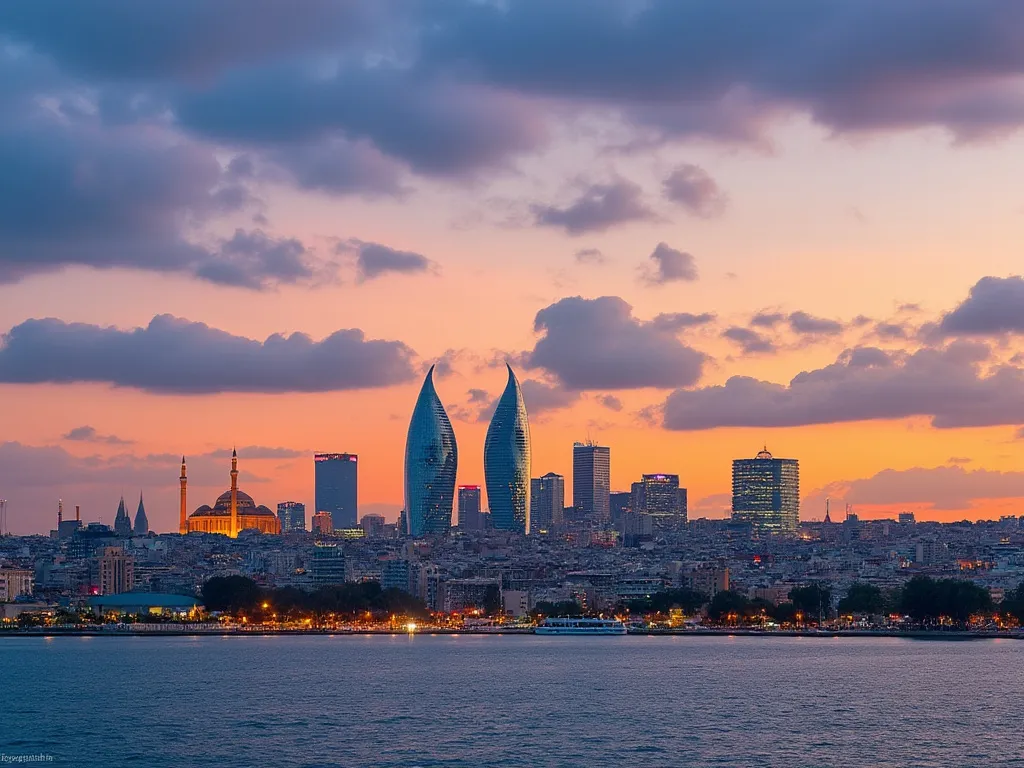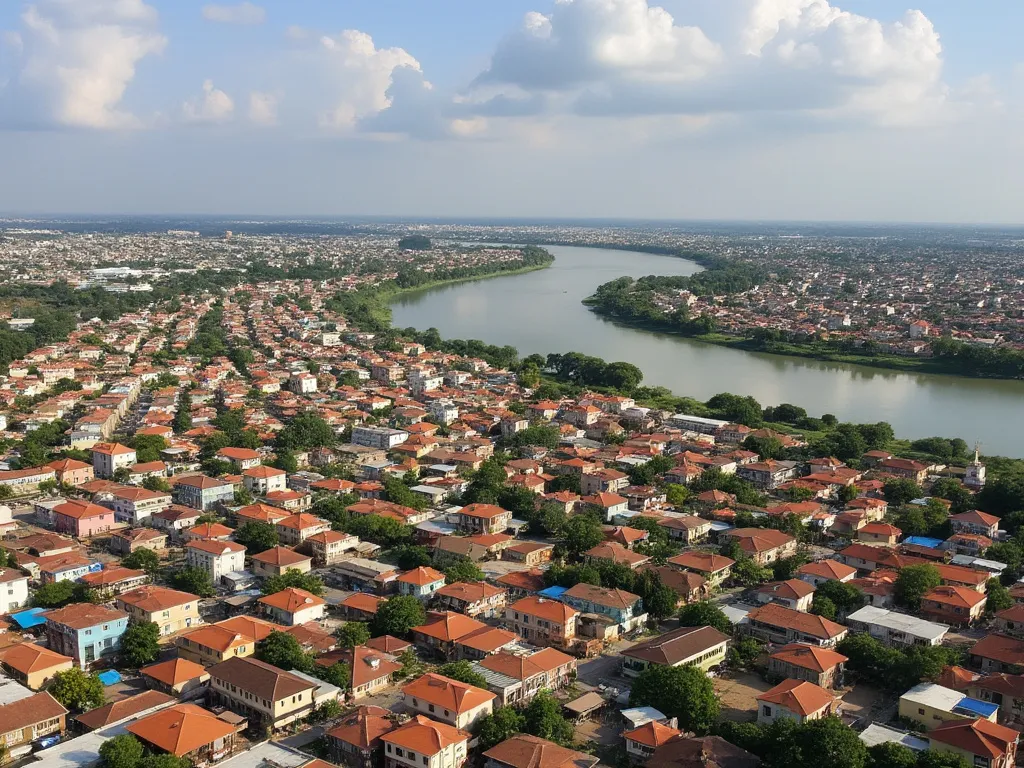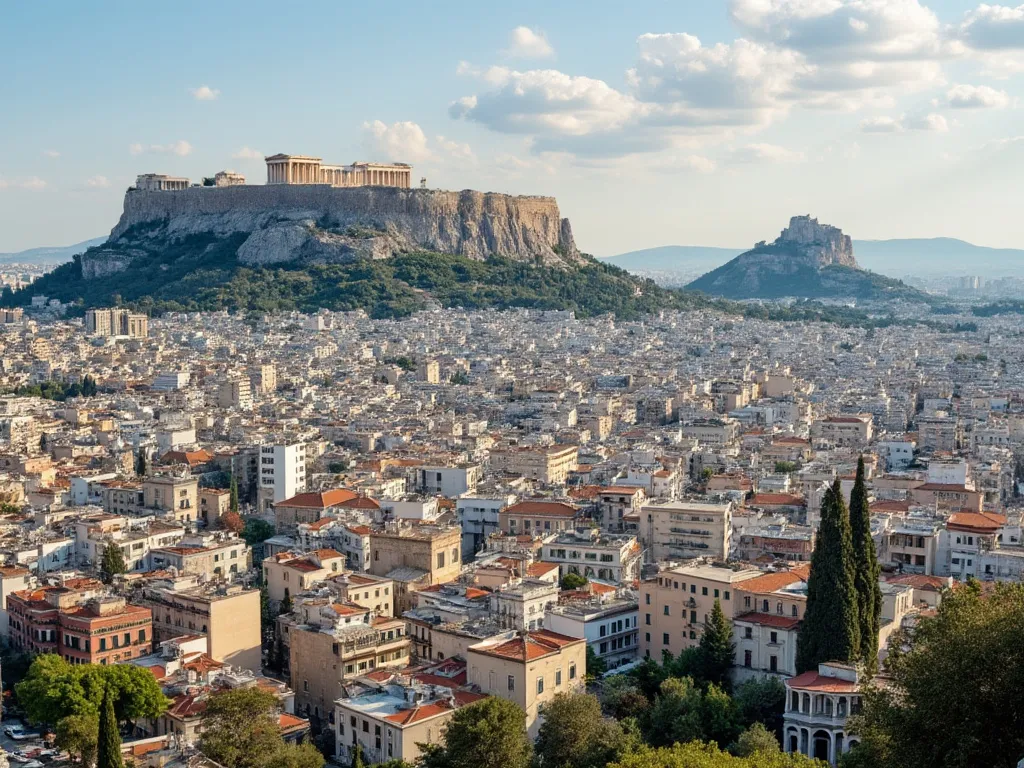
Baghdad is the capital city of Iraq
Baghdad, the capital city of Iraq, is a city with a rich history dating back over 1,200 years. Strategically located on the Tigris River, Baghdad has played a significant role in the region's politics, economy, and culture. From its founding in 762 CE to the present day, Baghdad has been a center of learning, art, and commerce.
Baghdad Information
| Country | 🇮🇶 Iraq |
| City Population | 7,130,000 (2021 estimate) |
| City Coordinates | 33.32°N 44.44°E |
| City Area | 1,134 km² (437 sq mi) |
| Climate | Hot desert climate |
| Language | Arabic (official), Kurdish |
| Currency | Iraqi dinar (IQD) |
| Time zone | UTC+3 |
| Proximity to other major cities | Basra (550 km / 342 mi), Najaf (160 km / 99 mi), Erbil (350 km / 217 mi) |
Historical Background of Baghdad
Baghdad was founded by the Abbasid Caliph Al-Mansur in 762 CE as the capital of the Islamic Empire. During the Islamic Golden Age, Baghdad became a center of learning and intellectual pursuits, attracting scholars and philosophers from all over the world. The city was a major hub of trade and commerce, with merchants coming from as far as China and Europe.
Geographical Location of Baghdad
Baghdad is situated on the Tigris River, which runs through the city and provides a source of water and transportation. The city is located in the central part of Iraq, roughly equidistant from the country's borders with Iran, Turkey, and Syria. Baghdad's geography has played a significant role in its development, with the city's riverside location facilitating trade and commerce.
Cultural Significance of Baghdad
Baghdad has a rich cultural heritage, reflecting its history as a center of learning and intellectual pursuits. The city is home to numerous museums, including the National Museum of Iraq, which houses a vast collection of artifacts from ancient Mesopotamia. Baghdad is also known for its vibrant arts scene, with numerous galleries and festivals celebrating Iraqi art and culture.
Economic Importance of Baghdad
Baghdad is the economic hub of Iraq, with a diverse range of industries, including oil and gas, manufacturing, and finance. The city is home to the Iraq Stock Exchange and numerous banks and financial institutions. Baghdad's economy has been impacted by conflict and instability in recent years, but the city remains a vital center of commerce and trade in the region.
Interesting Facts About Baghdad
- Baghdad is often referred to as the "City of Peace" due to its rich cultural and intellectual heritage.
- The city's famous "House of Wisdom" was a renowned center of learning during the Islamic Golden Age.
- Baghdad is home to the largest mosque in Iraq, the Al-Faw Mosque.
- The city has a rich literary heritage, with numerous famous Iraqi writers and poets hailing from Baghdad.
Tourist Attractions in Baghdad
- The National Museum of Iraq
- The Al-Faw Mosque
- The House of Wisdom
- The Tigris River waterfront
- The bustling souks (markets) of the city
Conclusion on Baghdad
Baghdad, the capital city of Iraq, is a city with a rich history, culture, and economy. From its founding in 762 CE to the present day, Baghdad has played a significant role in the region's politics, economy, and culture. Despite facing numerous challenges in recent years, Baghdad remains a vibrant and fascinating city, offering a unique blend of tradition and modernity.
 Baku
Baku
 Bamako
Bamako
 Athens
Athens
 Avarua
Avarua